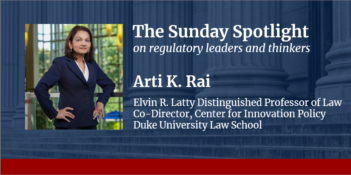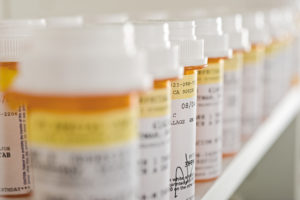The Future of Scientific Innovation
Arti K. Rai explores how patent regulators can enable future innovation.
The Important Case that Most People Know Nothing About
United States v. Eaton serves as the constitutional basis for thousands of executive branch decisions.
Should Patents Create Incentives for Failure?
Scholar argues that patents do not—and should not—compensate for the costs of drug development.
Challenging Drug Patents to Lower Prices
The FTC cracks down on improperly listed drug patents, challenging over 100 patent listings.
How Patents Contribute to High Drug Prices
Patents covering drugs selected for Medicare price negotiation show how patents influence drug prices.
Oh, When the Feds Go Marching-In
Marching-in could allow federal government to commercialize inventions, but at the expense of patent rights.
Headless Agency Adjudication at the Patent Office
Supreme Court approval of patent adjudication raises new questions about limits of modern agency adjudication.
The First Amendment Protects Offensive Trademarks
Supreme Court holds that government cannot discriminate against offensive trademarks.
For Hepatitis Drugs, Availability Does Not Equal Access
Is the government willing to infringe on drug patents to curb a public health crisis?
Simplicity Trumps Logical Coherence
The Supreme Court upholds its concededly “incorrect” ban on post-expiration patent royalties.
Improving Patent Quality by Reducing the Patent Office’s Backlog of Applications
Improving the patent system depends on reducing processing snarls.
Chevron Deference for the U.S. Patent and Trademark Office
Asymmetrical deference to PTO decision-making may promote pro-patent policies.












